Why Do Ferrets Stink?
Ferrets are popular pets, but many people note that they have a distinct odor to them. This musky smell is something that most ferret owners get used to and eventually don't even notice, but sometimes the stink is worse than it should be. By understanding the cause of the normal smell and what might cause it to be problematic, you can keep your ferret's odor to a minimum.
Why Do Ferrets Stink?
Just like dogs and cats, ferrets are born with anal glands that are located on either side of their rectum. These glands secrete a foul smelling fluid that is used to mark territory. Nearly all pet ferrets sold in pet stores have their anal glands removed at a very young age, through a process called descenting. Because of this procedure, it means that the anal glands are not usually the cause of a pet ferret's earthy or musky smell.
Despite being descented, ferrets still have other glands besides their anal glands that secrete scented substances. Sebaceous glands are located on the skin of ferrets and produce secretions that give ferrets their unique, normal smells. These glands are also larger in male and female ferrets that have not been spayed or neutered so intact ferrets will smell worse than those that have been fixed.
But in addition to anal and sebaceous glands, ferrets can have problematic smells. They can get their feces on their feet and fur, especially if they have diarrhea, develop ear infections, and have dental problems that can result in unwanted smells. A dirty environment and poor quality food will also contribute to your ferret being stinkier than it should be due to the effects these things can have on the health of the skin and fur.
Treatment
If your ferret stinks, the first thing you should do is ensure it is spayed or neutered. Almost all pet ferrets are fixed at a young age so if this is not a concern for your ferret, then the next thing you can do is make sure your ferret's enclosure is clean. Throw away the dirty cage bedding, wash the blankets, empty the litter box, and wipe down all surfaces with a pet-safe cleaner. Replace the litter, bedding, and blankets with clean options and add an air purifier to your ferret's ferret-proofed room.
Next, assess your ferret's diet. If your ferret is eating a low-quality ferret or cat food, improve its level of nutrition to boost its skin and fur health. Opt for a high-protein, high-fat, low-fiber, and low-carbohydrate ferret kibble or whole prey. Ferrets that don't eat appropriate food may develop oily, smelly skin and fur as well as soft, extra-smelly stools, so correcting a ferret's diet often results in a less stinky pet.
If your ferret is simply dirty, a quick bath in mild dish soap, ferret, kitten, or puppy shampoo should do the trick. Be sure to thoroughly clean between its toes, clean its ears with a pet-safe ear cleaner, and don't allow it to get chilled or overheated. Towel your ferret dry and place it back in its clean enclosure while you enjoy how it no longer stinks.
How to Prevent Ferrets From Stinking
Your ferret may always have its special scent but that doesn't mean it has to stink. To keep your spayed or neutered ferret from stinking, there are a few things you can do.
Maintain a clean cage with thorough, weekly cleanings, remove fecal matter from the litter box on a daily basis, and continually feed a high-quality ferret kibble or whole prey diet to keep its skin and coat healthy. Keep your ferret's skin and coat clean with the occasional bath and use wipes to freshen your ferret's fur, especially after it eats whole prey or uses the litter box. Additionally, if you are feeding whole prey, feed it to your ferret outside or on a surface that can be easily cleaned such as a plastic trash bag or in a large plastic storage container. Finally, consider using an air purifier in the room where your ferret lives to keep the air fresh and choose an odor-absorbing litter for its litter box.
RECOMMENDED NEWS
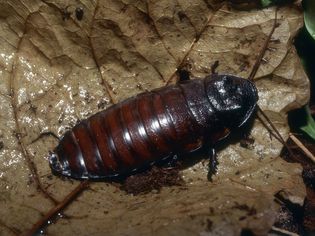
Should You Keep a Madagascar Hissing Cockroach as a Pet?
Have you ever considered keeping a cockroach as a pet? Madagascar hissing cockroaches, otherwise kn...
Read More →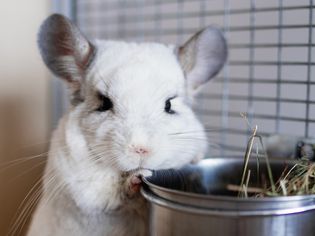
Chinchilla Care Guide
Chinchillas can make wonderful pets for the right person, but before deciding on a pet chinchilla, ...
Read More →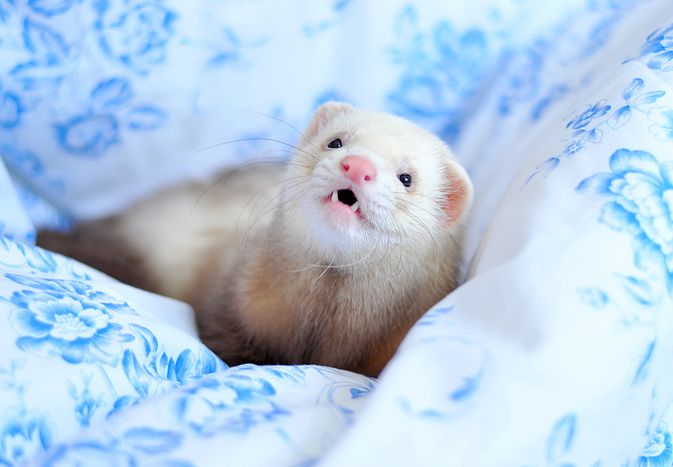
Coronavirus in Ferrets
Slinky, mischievous, and intelligent, ferrets are members of the weasel family that love to play an...
Read More →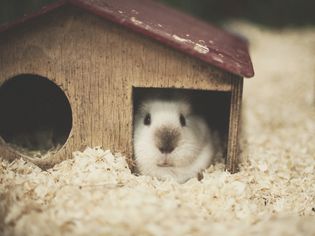
Guinea Pig Musts: Must Have and Must-Not Items
Guinea pigs, also called cavies, need certain basics to ensure their health and happiness at home. ...
Read More →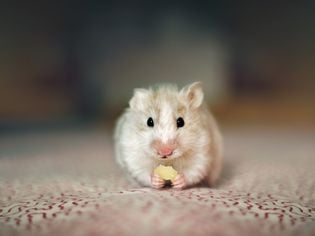
Finding a Lost Hamster
Hamsters are surprisingly good escape artists. Sometimes you lose sight of your hamster while you ...
Read More →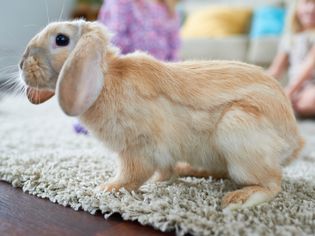
How to Make Your Rabbit Stop Digging Your Carpet
If you have a rabbit and carpeting, then you probably have a rabbit that digs in that carpetin...
Read More →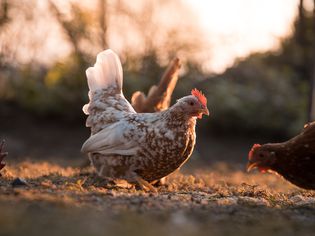
227 Chicken Names That Are Eggs-traordinarily Funny
Chickens are wonderful pets, and you can show your love to your pet by choosing from the many great...
Read More →
135 Cow Names for Your Bovine Companion
Cows make interesting companions who are intelligent, social, and friendly, so when you get one of ...
Read More →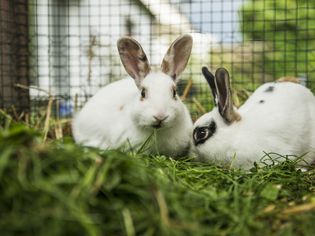
List of Exotic Pet Boarding Facilities
When you go on vacation you may have a difficult time trying to find a place that will be abl...
Read More →
Comments on "Why Do Ferrets Stink?" :